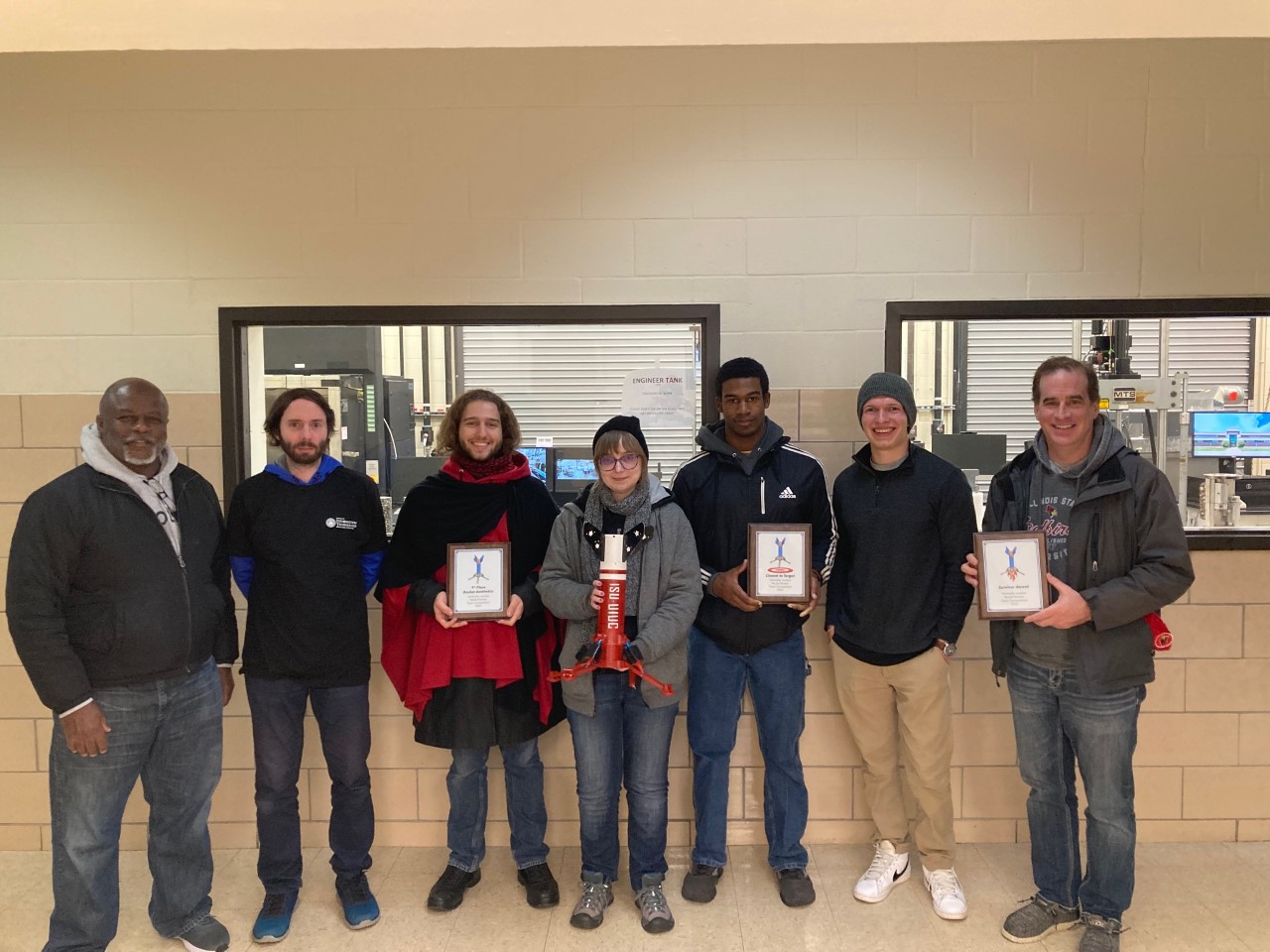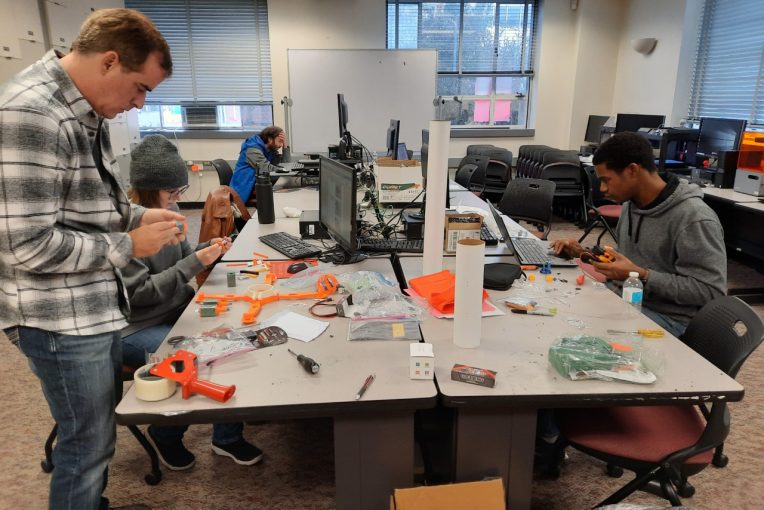Last November, a team of five Illinois State University Information Technology (IT) students took on students from across the state in a vertical rocket landing competition and secured the top prize.
Now, the students and faculty involved are looking to the next stages of space exploration research and competition at Illinois State.
The competition, hosted by the University of Illinois, made students consider the engineering complexities of landing a rocket vertically after launch. Illinois State’s team took home three awards for the best-designed rocket, landing the rocket closest to the target, and an award for participation.
Dr. William Lewis, assistant professor in the School of Information Technology, explains that NASA and the U.S. Department of Defense are researching vertical rocket landing because successfully doing so will allow rockets to be reused after space exploration. With Illinois State’s new College of Engineering on the horizon, Lewis thought the time was right to get Redbirds working on these sorts of engineering problems. To pull a team together, he enlisted the help of graduate student Daniel Freburg, who is working with Lewis on a research project about cube satellites.
“I’m creating a ground station that will receive signals from cube satellites, which is the first step in creating a CubeSat,” Freburg said.
Before the competition, teams were sent a model rocket kit and software that allows students to run simulations of their landings. For safety reasons, the engine to the rocket is not sent with the kit, so the team did not see their rocket in action until the day of the competition. Members of the Illinois State team spent Saturdays in the fall building and styling the rocket and running dozens of simulations in a variety of conditions to maximize their accuracy.
At the competition, the rocket was lifted approximately 25 feet in the air by a drone and then dropped. The team programmed the rocket’s engine to fire about a second after dropping and adjusted its trajectory to land as close to the middle of a bullseye on the ground as possible.
“After spending over a month building the rocket, running the simulations, and learning about all of the engineering concepts that were required to compete, just being there on the launch pad and seeing that first flight of the rocket was pretty satisfying,” Lewis said.

One of the biggest challenges competitors faced was the weather.
“It was very cold that day—very cold and windy,” Lewis said. “Both of those played a significant role in the flight of the rockets. The cold weather created a delay in the ignition of everyone’s rocket engine. The wind was just blowing so strongly that after rockets were dropped, there was a lot of horizontal movement in terms of their position.”
Illinois State’s team overcame these challenges to land their rocket closer to the target than any other team. Even though he was proud of the result, Freburg said the most rewarding part of the competition was to represent Illinois State and show other schools what Redbirds can do.
“We represented ISU well,” Freburg said. “This competition showed that ISU has students capable of doing projects like that.”
Lewis and Freburg hope to organize another team of students to compete in a similar competition tentatively scheduled for later this semester. To generate a larger pool of interested students, Freburg is in the initial stages of creating a registered student organization called Redbirds in Space for those who want to immerse themselves in the technical side of space exploration. If interest is high enough, Illinois State will send two teams to compete.
“I was really proud of our students,” Lewis said. “They were competing against students in engineering programs, who have been exposed to this area, this tech, these types of concepts and technologies possibly as far back as high school. We put together the best team we could find, and they went out and they won first place in this competition.”
Want to get involved? Contact Dr. Will Lewis and Daniel Freburg.

